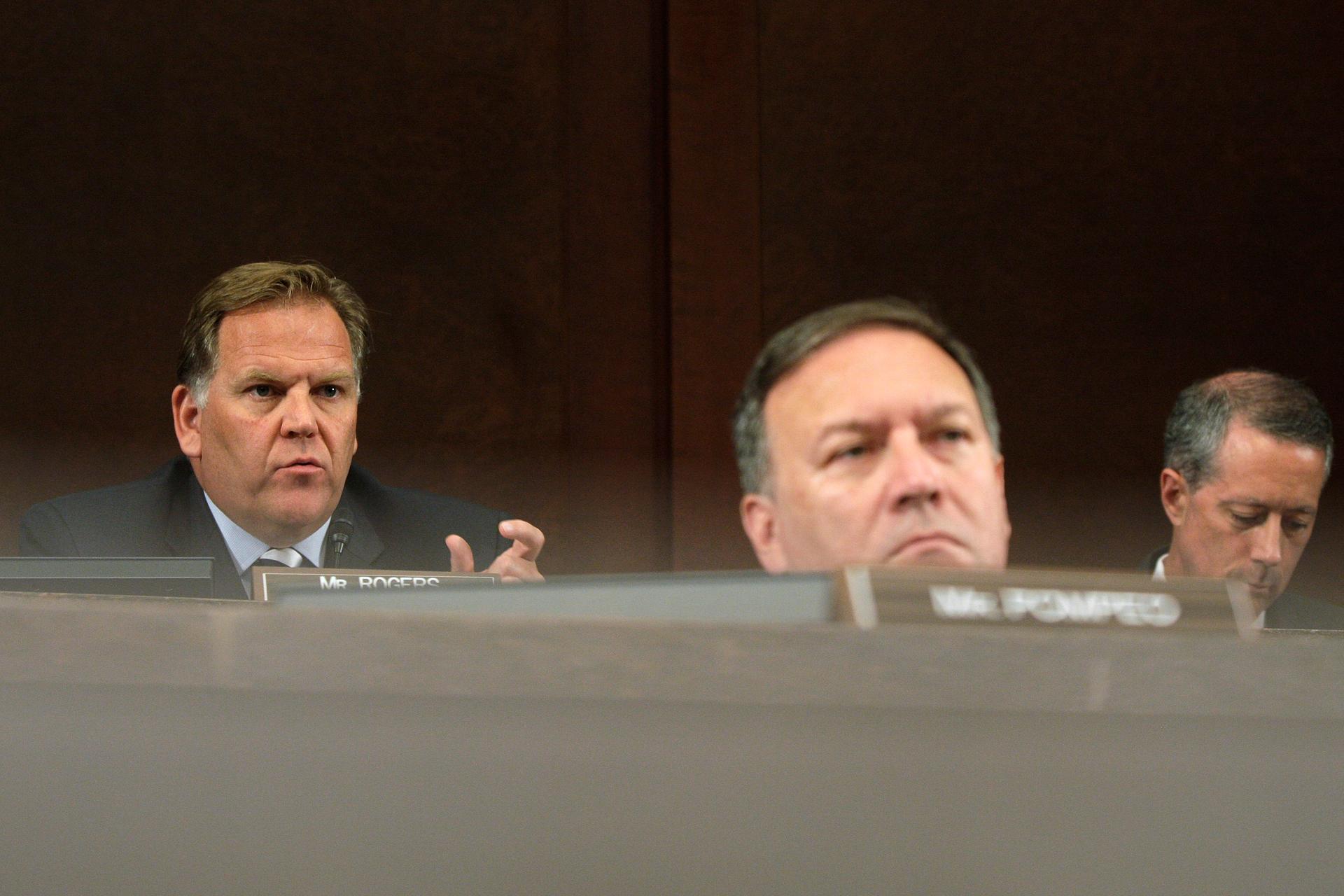Representative Mike Pompeo (R-KS) during a U.S. House Permanent Select Committee on Intelligence hearing on disclosed NSA surveillance programs, at the U.S. Capitol in Washington June 18, 2013.
Mike Pompeo, chosen by President-elect Donald Trump to lead the Central Intelligence Agency, is a strident critic of the Iran nuclear deal and favors unrestrained data collection by US spy agencies.
As a member of the House Intelligence Committee, Republican Representative Pompeo, 52, has been active in monitoring the CIA and other US spy agencies, and has argued that they need unrestricted powers to collect data online from US citizens and foreigners.
The former army officer has also opposed efforts to shut down the US Guantanamo Bay prison camp for terror detainees, regularly criticizing releases and transfers of prisoners.
Crucial in the job will be how he regards the use of torture in interrogations banned by the Obama administration.
The CIA's reputation was deeply marred by its use of torture on detainees following the September 11 attacks. Trump has said he believes "enhanced interrogation" works and that the US "should go much stronger than waterboarding."
A graduate of the prestigious US West Point military academy, where he was first in his class, and later Harvard Law School, Pompeo worked in the powerful Republican-oriented law firm Williams and Connolly and owned an aircraft components firm, Thayer Aerospace.
After selling that company, with financial support from the influential conservative billionaire Koch brothers he was elected in Kansas in 2010 to the House of Representatives, where he was a member of the hardline Tea Party faction.
In the House, Pompeo made his name as one of the leaders of the controversial Benghazi Committee. Its highly politicized investigation into the 2012 attack on the US consulate in the Libyan city, which left four Americans, including the US ambassador, dead, targeted Trump's presidential rival Hillary Clinton.
Pompeo gained exposure to intelligence matters in 2013 when he was appointed to the House Intelligence Committee.
In that venue he leveled scathing criticism of the Obama administration's 2015 deal with Iran to lift sanctions in exchange for a halt to its program to develop nuclear weapons.
In interviews and written pieces, he has pointed to Iran as the primary source of conflict in the Middle East since Tehran's 1979 revolution.
Pompeo said last year that the Iran nuclear deal is "empowering an Iranian regime that is intent on destroying America."
And on Thursday ahead of his nomination he tweeted: "I look forward to rolling back this disastrous deal with the world's largest state sponsor of terrorism."
Backs ending surveillance limits
He has also strongly opposed the controls Congress set on data collection on American citizens by the CIA, National Security Agency and other agencies after the NSA's unauthorized sweeping of phone data was exposed in 2013.
In January he wrote in the Wall Street Journal that new restrictions were blunting the surveillance capabilities of the intelligence community.
"Congress should pass a law re-establishing collection of all metadata, and combining it with publicly available financial and lifestyle information into a comprehensive, searchable database. Legal and bureaucratic impediments to surveillance should be removed."
But with enemies like Islamist extremists increasingly able to use encryption to hide their communications, he also said that the agencies needed greater funding and staffing for field activities.
Nevertheless, Pompeo's work has earned grudging respect from even his Democratic colleagues.
Adam Schiff, the senior Democrat on the House Intelligence Committee, called him "bright and hard-working."
"While we've had our share of strong differences, I know he's someone who is willing to listen and engage, both key qualities in CIA Director," he said in a tweet.
Agence France-Presse contributed this written report.
Every day, reporters and producers at The World are hard at work bringing you human-centered news from across the globe. But we can’t do it without you. We need your support to ensure we can continue this work for another year.
Make a gift today, and you’ll help us unlock a matching gift of $67,000!
